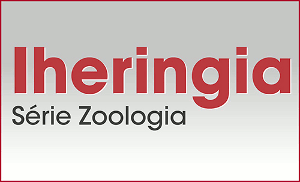ABSTRACT
Currently, plastics are recognized as a major pollutant of the marine environment, representing a serious threat to ocean wildlife. Here, we examined the occurrence and effects of plastic ingestion by sea turtles found stranded along the coast of Paraíba State, Brazil from August 2009 to July 2010. Ninety-eight digestive tracts were examined, with plastic found in 20 (20.4%). Sixty five percent (n = 13) of turtles with plastic in the digestive tract were green turtles (Chelonia mydas), 25% (n = 5) were hawksbills (Eretmochelys imbricata), and 10% (n = 2) were olive ridley (Lepidochelys olivacea). More plastic was found in the intestine (85%) than in other parts of the gastrointestinal tract. We observed complete blockage of the gastrointestinal tract due to the presence of plastic in 13 of the 20 turtles that had ingested plastic. No correlation was found between the curved carapace length (CCL) and the number or mass of the plastic ingested items. Significant differences were found between the intake of hard and soft plastic and the ingestion of white/transparent and colored plastic, with soft and white/transparent plastics being more commonly ingested. This study reveals the serious problem of plastic pollution to sea turtles at the area.
KEYWORDS
Marine debris ingestion; gastrointestinal blockage; Chelonia mydas; Eretmochelys imbricata; Lepidochelys olivacea

 Thumbnail
Thumbnail
